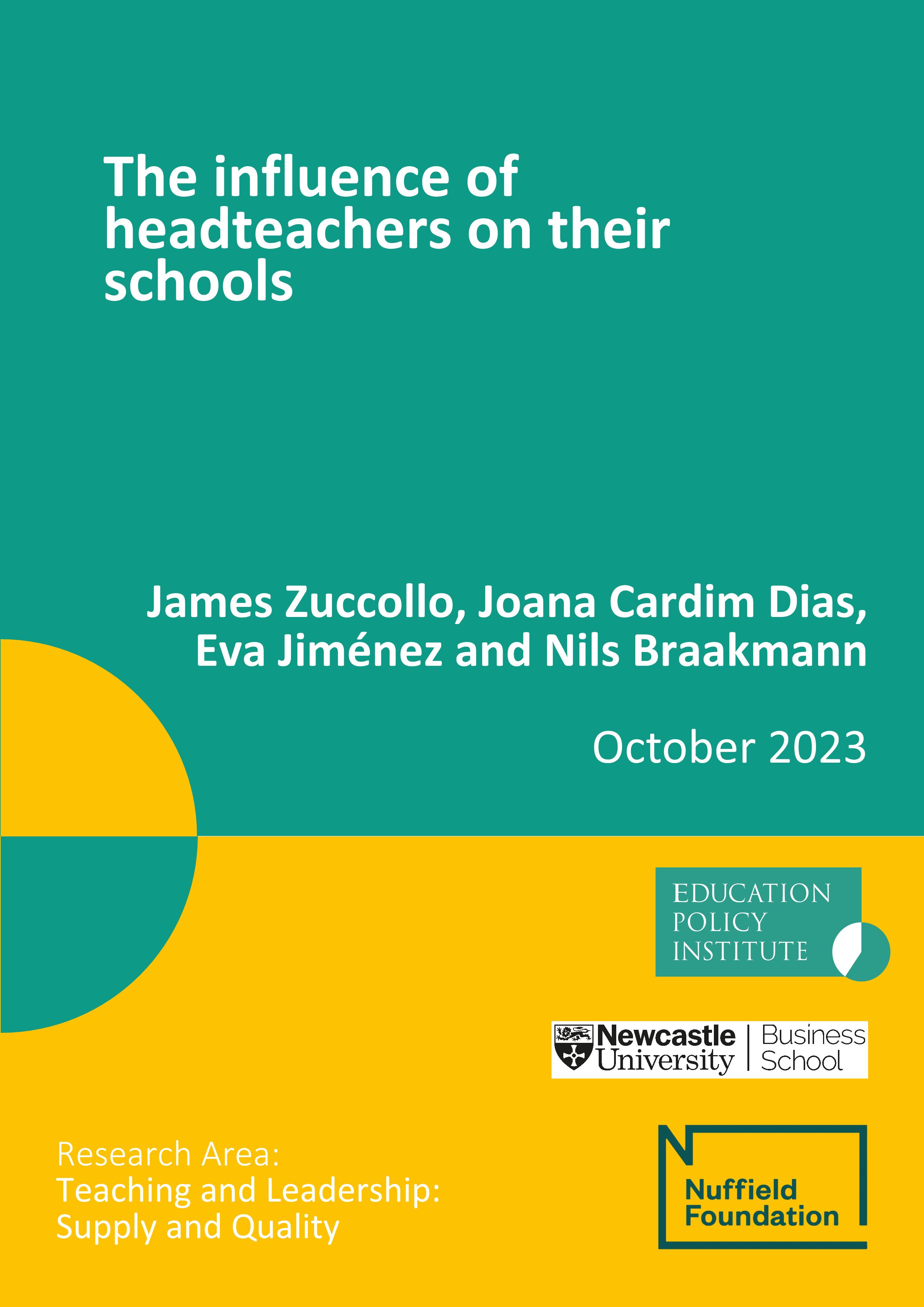This report assesses the impact of headteachers on school performance in England, and the mechanisms through which headteachers influence performance. In addition, the study explores whether a headteacher’s gender and ethnicity have an impact on the composition of the pupil and staff bodies, and on the attainment of specific demographic groups.
The report finds that:
- Replacing an ineffective headteacher (identified as being in the 16th percentile) with an effective headteacher (in the 84th percentile) increases pupil attainment by an average of two GCSE grades across all subjects.
- Even replacing an ineffective headteacher (identified in the 16th percentile) with one of average quality can still deliver improvements, equivalent to an increase of one grade in one GCSE subject.
- Given an extra grade is estimated to add £8,000 to the pupil’s lifetime earnings, in an average secondary school of 1,000 pupils, recruiting an effective headteacher instead of an ineffective headteacher and retaining them in post for five years, could result in an extra £16 million in lifetime earnings for those pupils.
- Primary schools that switch from an ineffective to a more effective headteacher were found to gain an additional three months of learning for pupils.
- Aside from improving attainment, the report also finds that effective headteachers reduce teacher turnover in both primary schools and secondary schools.
- It also finds that, in secondary schools, effective headteachers reduce staff absenteeism to a greater extent than less effective headteachers.
The report recommends that:
- The government should prioritise enhancing the quality of school leadership, which may be a cost-effective way of improving school performance.
- School governors and Ofsted should focus on supporting new headteachers, acknowledging that it may take years to realise the full improvement in results from switching headteachers.
- Government, working alongside MATs and local authorities should also consider how they can encourage their most effective school leaders into the most challenging schools, as headteachers are more likely to move within school groups rather than between them.
Read the report in full here:

This report has been kindly funded by the Nuffield Foundation.

The Nuffield Foundation is an independent charitable trust with a mission to advance social well-being. It funds research that informs social policy, primarily in Education, Welfare, and Justice. The Nuffield Foundation is the founder and co-founder of the Nuffield Council on Bioethics, the Ada Lovelace Institute and the Nuffield Family Justice Observatory. The Foundation has funded this project, but the views expressed are those of the authors and not necessarily the Foundation. Website: www.nuffieldfoundation.org Twitter: @NuffieldFound

Newcastle University Business School know that the world of business is changing because they are driving that change. Their world-leading research explores issues facing the future of work, and solves them. This is reflected in students’ education and inspires excellence through their teaching. The School are leading the way on leadership, shaping and creating business leaders of the future. They aspire to create a more just, inclusive and prosperous global society. As a ‘triple-crown’ accredited business school, they are one of an elite group of schools. Newcastle University Business School are proud of their place among these global institutions. Website: https://www.ncl.ac.uk/business/ Twitter: @NCLBusiness

